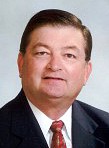
Alex Mills
By Alex Mills
The oil and gas industry has been the target of lawsuits for many years, but a recent case in Dallas County has a new twist that has industry CEOs and lawyers concerned.
The case involves Aruba Petroleum of Plano and Bob Parr, a landowner in Wise County who purchased 40 acres in 2000 and built a house on the property in 2002. There were a large number of wells already producing within two miles of Parr’s property, but none on his 40-acre tract.
Parr does not own the mineral rights.
In 2008, Aruba began drilling near Parr’s property, and Parr, his wife as well as her daughter began complaining about health problems. They claim that they were told by a physician to move out of the house based on (very low, background level) methane reading from an air sample taken inside the home. The family did move into Parr’s office for about 6 months, but they moved back into the house without conducting any air monitoring.
The Parr’s alleged that Aruba substantially interfered with the use of their land even though Aruba had no operations on Parr’s land, except for a buried pipeline that crossed it. Additionally, Aruba’s operation was in compliance with state and federal regulations, but, over a six-year period, there were a handful of complaints by TCEQ and others of “nuisance” odors near Aruba’s well sites.
Instead of alleging negligence or trespass, Parr’s attorney claimed that the Aruba’s operation created a “nuisance” and Aruba substantially interfered with their “use and enjoyment” and caused “unreasonable discomfort or annoyance to a person of ordinary sensibilities.”
Aruba’s attorney Michael Mazzone, of the Hayes Boone law firm, said the Parr’s never presented reliable evidence from a credible physician that there was sufficient harmful air emissions at the Parr property to cause the medical problems alleged by the Parrs.
The Texas Commission on Environmental Quality did conduct air emission tests and found that respiratory irritation is usually caused “at concentrations greater than those reported.” However, it did advise a reduction in emissions, which Aruba accomplished. TCEQ later reported that “reported concentrations of target volatile organic compounds (VOCs) were either not detected or were detected below levels of short-term health and/or welfare concerns.”
On April 22, a jury in Dallas County Court found in favor of the Parrs and awarded them $2.95 million. Defense attorney Mazzone is puzzled by verdict and award given the evidence presented at trial. For example, the award includes an amount for diminution in value of the Parr property even though Parr has the property up for sale for $695,000, which is about $145,000 more than its appraised value.
Post-trial briefs are scheduled to be filed by June 6 with the trial judge. A ruling is expected during the week of June 9. Because of the amount of the award, expect either side to appeal.
Alex Mills is President of the Texas Alliance of Energy Producers. The opinions expressed are solely of the author.





















Speak Your Mind